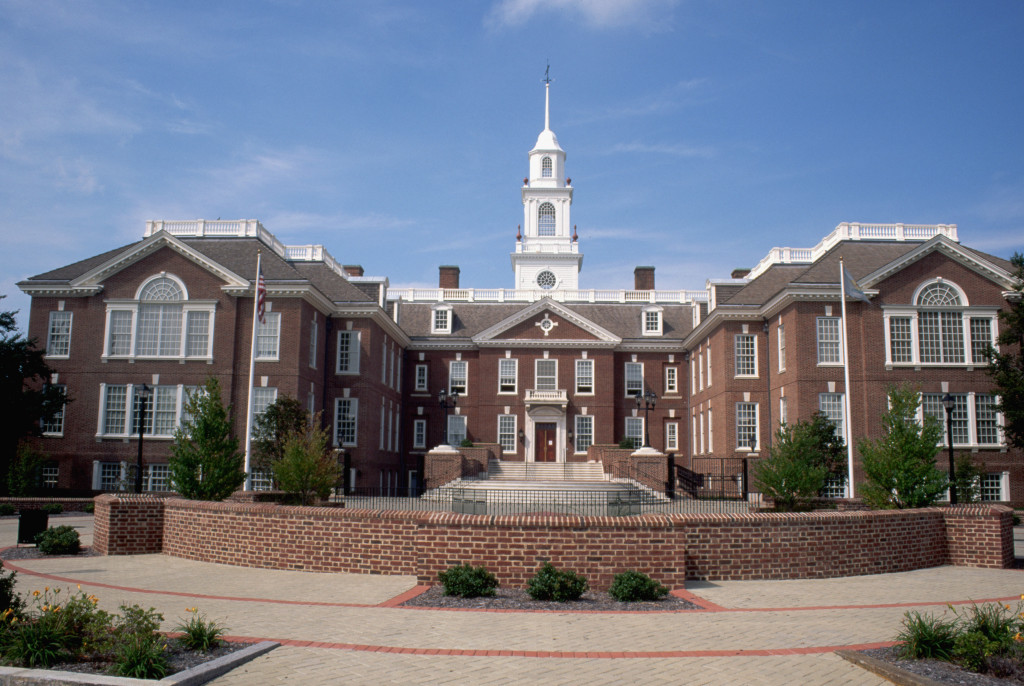The Delaware State Legislature is gearing up to return to session this week after a two-week break. As always, a host of education-related legislation is on the horizon. Now that we are halfway through the 2016 legislative calendar, here’s what you need to know in order to keep tabs on all things education-related down in Legislative Hall during the remainder of the 148th General Assembly.
What’s happened so far this year?
- Back in January, Governor Jack Markell delivered his final State of the State Address. We’ve decoded what this means for education in the first state.
- Then, the governor introduced his proposed budget for Fiscal Year 2017, which included a total investment of $49 million in our classrooms and children. See this overview of the governor’s budget for a summary of this proposed investment.
- In February, the Delaware Department of Education and the Office of Early Learning presented their portion of that budget to the Joint Finance Committee and answered legislators’ questions.
- Meanwhile, both the House and the Senate have begun to work education legislation—check out our Legislative Monitor for a full list.
What’s coming next?
- Many task forces and committees that were established in previous session years have been working hard to produce their reports, which may include recommendations that inspire legislative action. Here’s a handful of those education groups:
- Wilmington Education Improvement Commission: WEIC’s redistricting plan will be debated by the legislature now that it’s been approved by the State Board of Education. Stay tuned for Rodel’s breakdown of all the WEIC details.
- Educational Technology Task Force: This group just released its final report recommending how to ensure that all Delaware students have access to modern and effective educational technologies that enhance learning and promote college and career readiness.
- Assessment Inventory Committee: Following the Assessment Inventories process completed by the state and districts, this group is charged with putting forth recommendations regarding the appropriate amount and use of assessment in Delaware schools.
- Education Funding Improvement Commission: This group is tasked with reviewing and making recommendations to modernize and improve Delaware’s system for funding public education. Their report is currently due by June 30th.
- Behavioral and Mental Health Task Force: This group was established to examine mental health in the State of Delaware and make recommendations for the improvement of services and the mental healthcare system. Their report is currently due by May 31st
- DPAS II Advisory Committee: A subcommittee was established last year to review and make recommendations for changes to the current educator evaluation system.
- In addition to the topics above, issues like school safety, student health, college access, and more could find their way into the legislative process this spring.
- The Joint Finance Committee meets from May 23 and June 2 for budget markup, and the final budget will be voted on later in June.
How do I stay informed?
- Check out Rodel’s Legislative Monitor, updated weekly during session, to track all education legislation in the state legislature.
- Attend meetings of the many education-related committees, such as those listed above. You can search for them on the Delaware Public Meeting Calendar.
- Know your legislators! Use this tool to find your legislators and then read about their committee assignments and sponsored legislation to learn more about what issues they care about. This is a crucial first step to being an advocate. The Rodel Teacher Council visited Legislative Hall last month to get know their legislators and share insights on personalized learning from their classroom. Read more about it in Michele Johnson’s blog post, “Do You #KnowYourLegislator?”
- Follow me on Twitter @mthopkins126 for live education updates from Legislative Hall.
